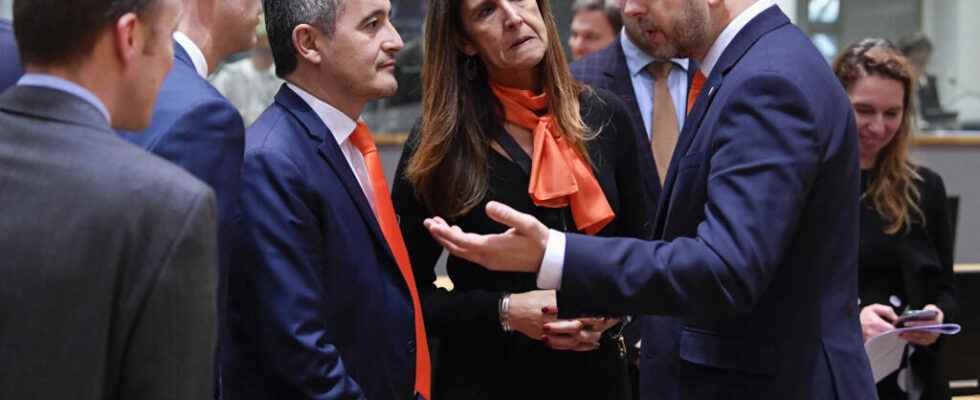European interior ministers held an emergency meeting in Brussels to round off the angles of the European Union’s migration policy, after the landing in Toulon of migrants from the Ocean Viking. The meeting has just ended and the Twenty-Seven have agreed to relaunch cooperation.
With our correspondent in Brussels, Pierre Benazet
The Twenty-Seven adopted a twenty-point action plan for the central Mediterranean, measures described as operational and which should, among other things, make it possible to restart the relocation mechanism.
It is this mechanism that France decided to suspend when theocean viking arrived in the harbor of Toulon two weeks ago.
► Read also The future of the survivors of the “Ocean Viking” in the blur a week after their reception in France
This agreement was one of the results in June of the French presidency of the Council of the EU, it had only been signed by a dozen countries, but among them Italy, France or Germany.
The principle is that some agree to receive migrants relocated to their territory, 8,000 over the year, including 3,500 for Germany or France.
In exchange, countries of departure such as Italy must act as border guards, accept boats in their ports and identify migrants on arrival to prepare for the screening of those who are eligible for asylum.
Most of the migrants leaving the North African coasts towards Europe are Tunisians, Egyptians or Bangladeshis, and they are therefore destined to return to their country of origin, says the European Commission.
This twenty-point plan also coordinates the rescue operations and all that remains is to apply it.
►Also listen: Immigration in the EU: “Revive this dynamic between solidarity and responsibility”
